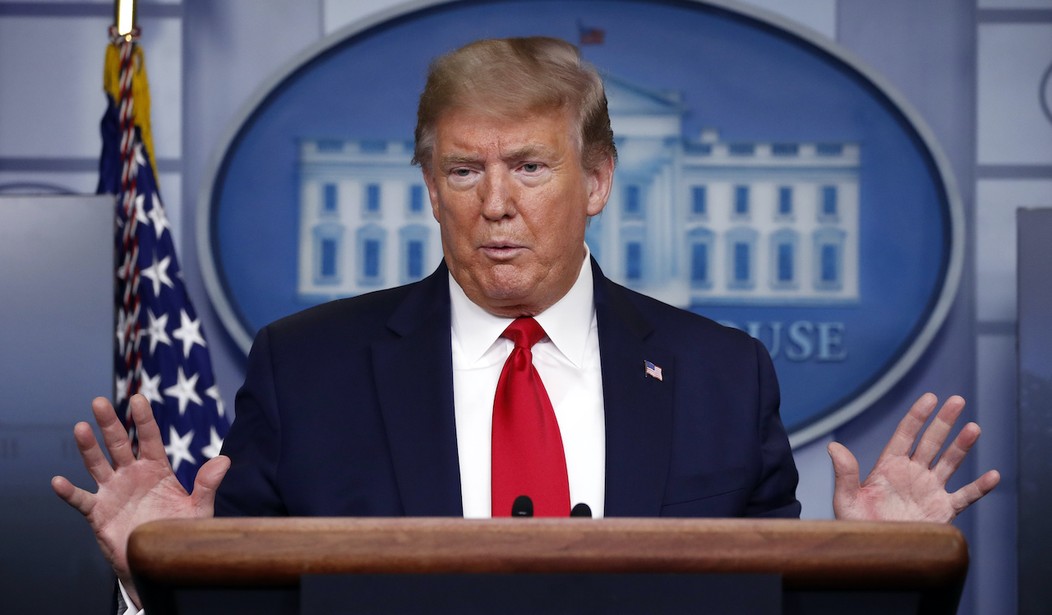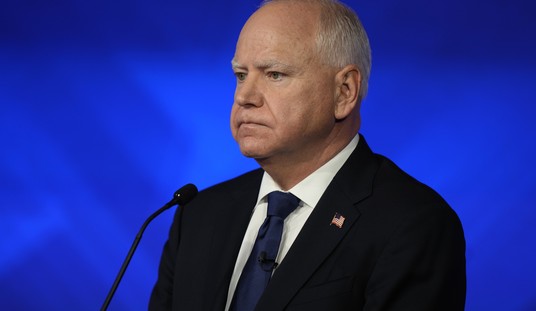Well, this isn’t the most shocking news given the FBI’s bad behavior when it came to investigations into Trump campaign, the administration, and this overall Russian collusion fiasco, but a new report shows that the nation’s leading domestic intelligence and law enforcement agency had always intended to spy on the president’s 2016 campaign. Last week, Sen. Lindsey Graham (R-SC), chair of the Senate Judiciary Committee, rolled out a new section of his committee’s website dedicated to the probe into the FBI’s surveillance operations into the Trump campaign. Margot Cleveland at the Federalist highlighted several disturbing conclusions, but the spying claim is certainly one of the most damaging. And one Cleveland writes that was always an intention from the bureau. Oh, and they also appeared to have spied on the Trump administration as well after the 2016 election:
When news first broke that the Obama administration had obtained a FISA order to surveil Page, Democrats and the left-leaning press argued the FBI’s surveillance of the former Trump foreign policy advisor didn’t constitute spying on the Trump campaign because the court-ordered surveillance didn’t begin until after Page had left the campaign.
“Conservatives tried to correct the record, noting that a Foreign Intelligence Surveillance Act (FISA) order gave the government access to Page’s past emails and other electronic communications with members of the Trump campaign, but the mainstream media ignored this reality.”
However, Inspector General Michael Horowitz’s report on FISA abuse later confirmed that, yes, “the FBI gathered substantial evidence of Page’s past electronic communications,” including multiple “emails between Page and members of the Donald J. Trump for President Campaign concerning campaign related matters.”
The recent declassifications of the FISA applications now expose a further reality: The FBI didn’t just seek access to past electronic communications with campaign members, the FBI believed Page would continue to communicate with the Trump campaign and sought the FISA court order to intercept those conversations.
While Page had announced he was “taking a leave of absence from his work with the campaign,” the first FISA application read, “because Page was one of the first identified foreign policy advisors for [Trump’s] campaign, the FBI believes that Page likely established close relationships with other members of [Trump’s campaign.]”
Accordingly, the FBI maintained in its initial FISA application that it “believes that Page likely established close relationships with other members of [Trump’s] campaign and likely would have continued to have access to members of [Trump’s] campaign, which he could exploit to attempt to exert influence on foreign policy matters, regardless of whatever formal role he played in the campaign.”
[…]
The FBI also failed to provide the Trump administration a defensive briefing concerning its belief that Russia sought to use Page’s connections with administration officials to influence America’s foreign policy. Instead, as the newly declassified information reveals, following Trump’s inauguration, the FBI sought to, and apparently succeeded in, intercepting communications between Page and members of the Trump administration.
In each renewal application, the FBI stated that “although the election has concluded, . . . the FBI believes the Russian Government will continue attempting to use U.S. based individuals, such as Page, to covertly influence U.S. foreign policy.” Then, after noting that “although Page no longer appears to be an advisor to the now President-elect” (and later “to the now President”), the FISA applications included several blacked-out sentences identified as FISA-acquired information.
Recommended
Again, something we’ve known for quite some time, but now comes with a Senate stamp of approval. The linguistic gymnastics the FBI and the liberal media exhibited with the Spygate claims was something to behold. They were sure going for the gold. The FBI had three Trump campaign officials, George Papadopoulos, Sam Clovis, and Carter Page, allegedly on their target list. They would glean information from them under false pretenses and then relay said information to their superiors, but it’s not spying. Even though Obama’s former spy czar, James Clapper, even admitted that what the FBI appeared to have done here fits the definition of…spying.
I mean, take George Papadopoulos’ run-in with a woman named Azra Turk at a London bar in September of 2016. This woman, Turk, was reportedly sent there to quarterback this surveillance operation with Stefan Halper, another FBI informant. The New York Times actually did a decent piece on it, with Papadopoulos’ only criticism being that he felt Turk was CIA, not an FBI agent:
He wasn't a spy.... he was hired by the FBI to secretly engage in conversations under false pretenses and then report back whatever he learned in those conversations.
— Larry O'Connor (@LarryOConnor) May 22, 2018
But he wasn't a spy.
?? https://t.co/Mki2Nvqc5X
The conversation at a London bar in September 2016 took a strange turn when the woman sitting across from George Papadopoulos, a Trump campaign adviser, asked a direct question: Was the Trump campaign working with Russia?
The woman had set up the meeting to discuss foreign policy issues. But she was actually a government investigator posing as a research assistant, according to people familiar with the operation. The F.B.I. sent her to London as part of the counterintelligence inquiry opened that summer to better understand the Trump campaign’s links to Russia.
The American government’s affiliation with the woman, who said her name was Azra Turk, is one previously unreported detail of an operation that has become a political flash point in the face of accusations by President Trump and his allies that American law enforcement and intelligence officials spied on his campaign to undermine his electoral chances. Last year, he called it Spygate.
The decision to use Ms. Turk in the operation aimed at a presidential campaign official shows the level of alarm inside the F.B.I.during a frantic period when the bureau was trying to determine the scope of Russia’s attempts to disrupt the 2016 election, but could also give ammunition to Mr. Trump and his allies for their spying claims.
Ms. Turk went to London to help oversee the politically sensitive operation, working alongside a longtime informant, the Cambridge professor Stefan A. Halper. The move was a sign that the bureau wanted in place a trained investigator for a layer of oversight, as well as someone who could gather information for or serve as a credible witness in any potential prosecution that emerged from the case.
This is all part of a parade of horribles that have rolled out of the J. Edgar Hoover Building. The DOJ apparatus of a Democratic president was spying on the presidential campaign of the rival political party, the DOJ/FBI used a piece of biased, political opposition research that was funded by the Democrats and the Clinton campaign to secure a spy warrant against Carter Page, going as far as to omit exculpatory evidence that would’ve cleared Page, and then there’s the lovebird story between disgraced FBI agent Peter Strzok and his mistress Lisa Page. The two sent tens of thousands of texts, most bashing Trump, and referring to an “insurance policy” against this president which many have said is the Trump dossier. Strzok also said his anti-Trump texts were signs of his patriotism, which Page contradicted by saying they “mean exactly what they say.” Page and Strzok also were worried that the FBI was going too hard on Hillary Clinton during the 2016 election, with Strzok, a then-top counterintelligence agent, being involved in two of the most politically sensitive probes to come across the bureau in recent memory: the Hillary email server investigation and the counterintelligence probe into Russian collusion. The latter of which he signed off on in July of 2016. This eventually became the special counsel investigation headed by Robert Mueller.
In that final report, yes, Russian collusion was debunked as well as the Trump dossier but omitted key pieces on information on Page, who was smeared as some Dark Lord of the Sith regarding Russian collusion, but who had actually worked with the CIA, FBI, and the State Department. And while no direct evidence of Trump-Russia collusion was found, that doesn’t mean that Mueller’s team, a group of hardcore liberals, were desperate in trying to find some. While some criticized Mueller’s team’s political affiliations, I was okay with it. The endless stream of nothing burger bombshells from the liberal media on this story meant nothing was there, and a group of diehard partisans investigating for over a year-and-a-half and still not being able to find a shred of evidence only gives its conclusion more credibility. Russian collusion is dead, but the damage to our institutions and people’s reputations is long-lasting—all because some folks didn’t like Trump. And do we even need to mention the DOJ plotting what could only be described as a coup, with top officials having conversations regarding invoking the 25th Amendment to remove Trump? Yeah, that happened. Disgraced ex-deputy FBI director Andrew McCabe was there, along with then-Deputy AG Rod Rosenstein.
The hunters have now become the hunted
— George Papadopoulos (@GeorgePapa19) April 30, 2020
Editor's Note: Want to support Townhall so we can keep telling the truth about the Obama Admin's FISA abuses and setup of General Flynn? Join Townhall VIP and use the promo code FISA to get 25% off VIP membership!
























Join the conversation as a VIP Member